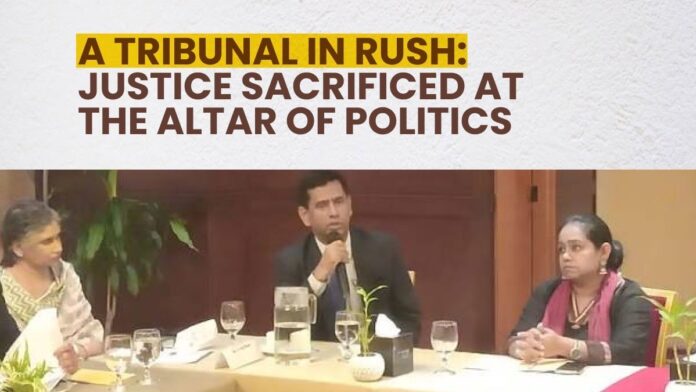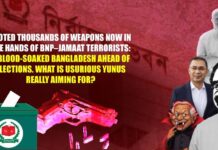Chief Prosecutor Mohammad Tazul Islam of the International Crimes Tribunal (ICT) has admitted – openly, and with startling candor – that trials for crimes against humanity are being rushed, not out of commitment to justice, but out of fear of political change. His own words paint a grim picture: the tribunal, supposedly a beacon of accountability, is being forced to compromise precision and thoroughness simply to meet an artificial deadline before the next election.
At a roundtable in Dhaka, organized to mark the International Day of the Victims of Enforced Disappearances, Tazul Islam confessed that the tribunal’s work is shackled by political uncertainty. He lamented: “As the election is coming in February, we are forced to worry that the incoming government might not continue these trials. That means I must rush, even if it comes at the cost of perfection.”
This revelation is not just troubling – it is damning. A tribunal meant to uphold the rule of law is admitting that justice is being bent, truncated, and hurried in service of political calculations. Instead of impartial accountability, Bangladesh is being handed hurried charge sheets and half-baked prosecutions, all because prosecutors fear the next government will abandon the process.
Tazul himself acknowledged the absurdity of this task: “Look at the scale – over 1,800 disappearances, countless killings. Is it practically possible to build meticulous cases in just a few months? No, it is impossible. Yet we are being forced into this impossible task, fearing what the next government may or may not do.”
What emerges from his testimony is chilling:
Justice is being reduced to a race against the clock.
Political timelines, not truth and evidence, dictate the tribunal’s pace.
The very integrity of the process is being sacrificed for appearances.
And yet, the rhetoric continues – prosecutors declaring that “criminals must be punished, regardless of rank or power,” while simultaneously admitting they cannot build cases with due diligence. The contradiction is stark: how can justice stand when the process itself is tainted by haste, fear, and political pressure?
The ICT was envisioned as a tribunal of history, a safeguard against impunity, and a reminder that atrocities must never be forgotten. Instead, it risks becoming an instrument of expedience – rushing to file charges not because the evidence is ready, but because the calendar demands it.
If justice becomes a political gamble, if trials are compromised to meet electoral deadlines, then Bangladesh is not healing its past – it is betraying it.
Reference – মানবতাবিরোধী অপরাধের বিচারে তাড়াহুড়া করতে হচ্ছে: চিফ প্রসিকিউটর





